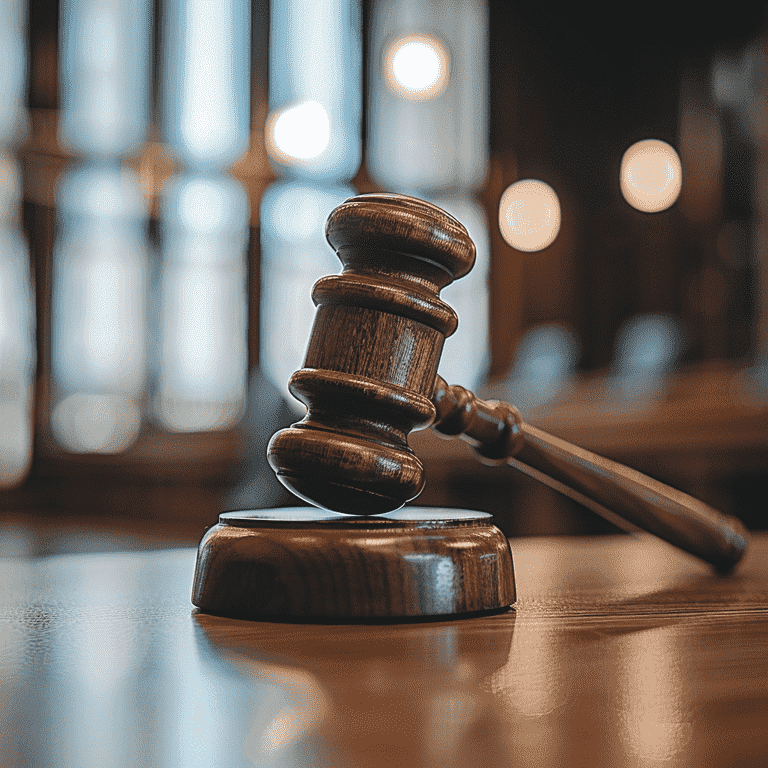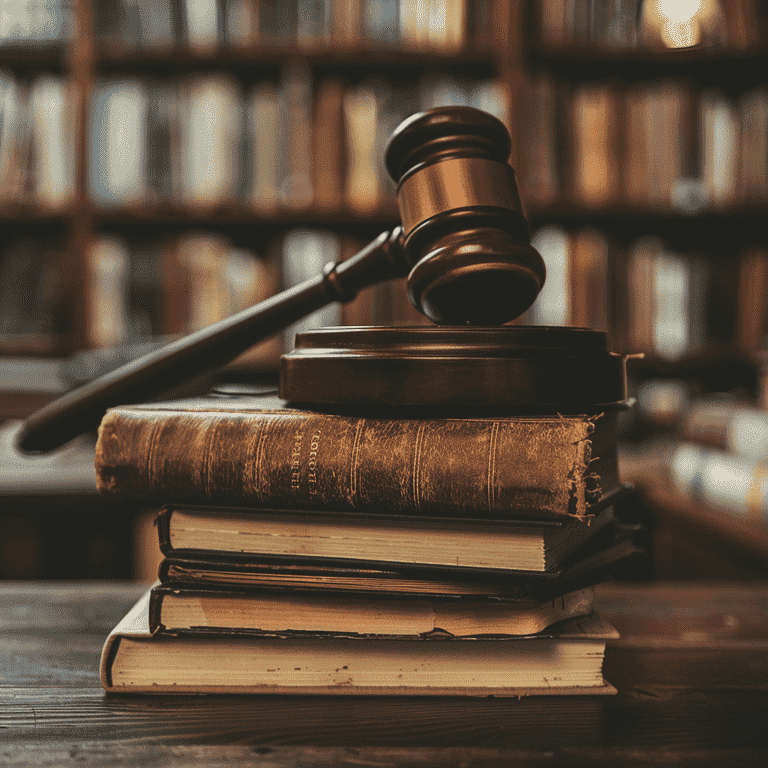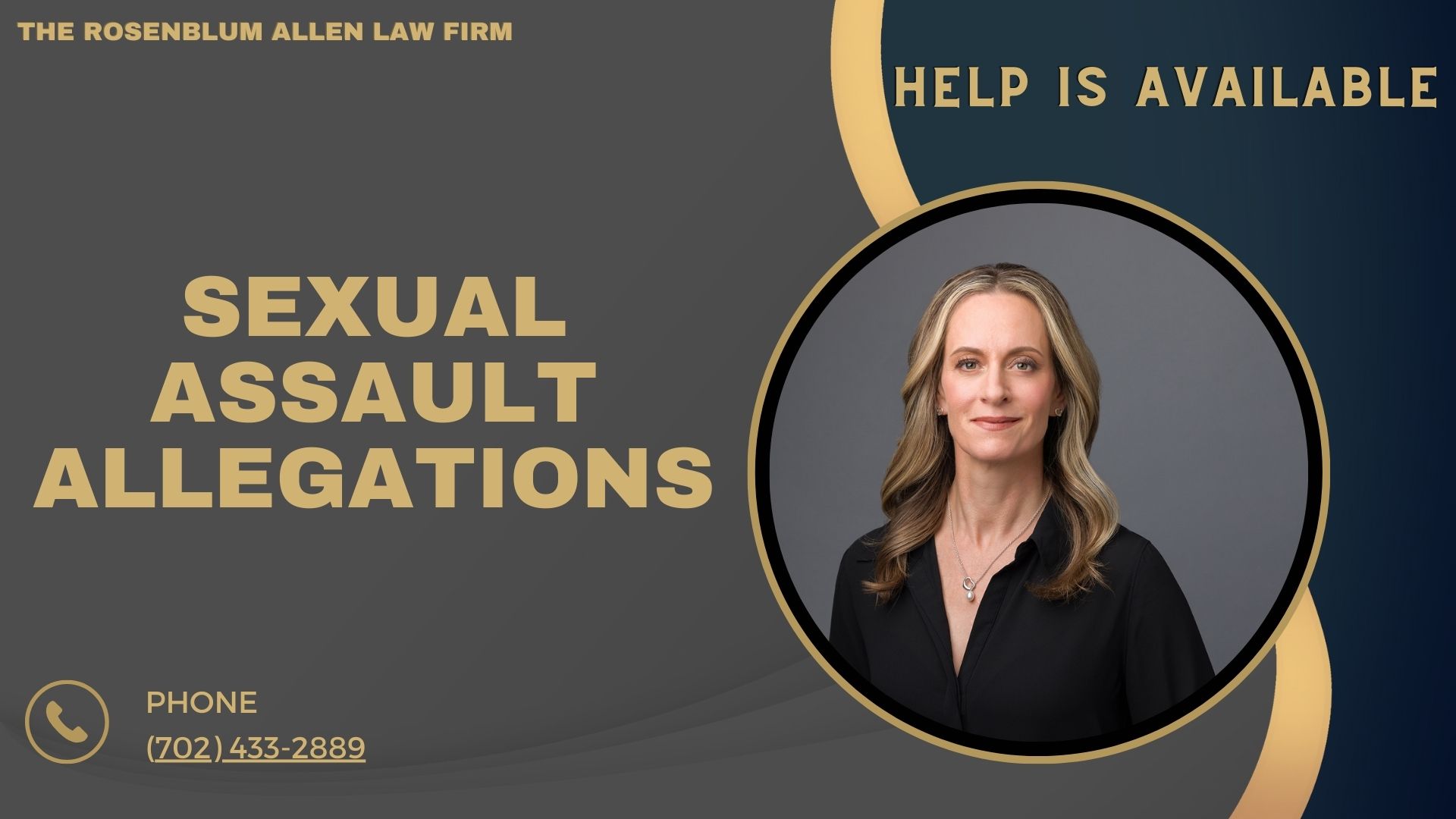Allegations of sexual assault are serious and sensitive. They affect people and communities worldwide. This guide aims to fully understand the topic. It covers legal, social, and personal aspects. You may be a victim. You may know someone affected. Or, you may just want to learn about this critical issue. The following information offers valuable insights.
Overview of Sexual Assault Allegations
Definition and Scope
Sexual assault refers to any sexual act done without consent. This includes rape, attempted rape, and other non-consensual sexual touching. Understanding the full range of sexual assault is crucial. This is true for both preventing it and seeking justice.
What Constitutes Sexual Assault:
Unwanted sexual touching
Rape or attempted rape
Forcing a victim to perform sexual acts
Legal vs. Social Definitions:
Legal: Specific acts defined by law that qualify as sexual offenses.
Social: Broader interpretations that include coercion, manipulation, or abuse of power in sexual contexts.
Statistics on Sexual Assault Allegations
Sexual assault allegations are common. They reveal a widespread issue. But, many cases still go unreported. Here’s a brief look at the statistics:
Prevalence in Different Contexts:
Domestic settings
Educational institutions
Workplaces
Reporting Rates:
It’s estimated that less than 40% of sexual assaults are reported to authorities.
Factors affecting reporting include fear of retaliation, belief that the police will not help, and feelings of shame.

The Impact of Sexual Assault Allegations
On the Victims
The repercussions of sexual assault are profound and enduring. Victims often experience a range of psychological and emotional effects:
Psychological and Emotional Effects:
Depression and anxiety
Post-traumatic stress disorder (PTSD)
Long-term emotional trauma
Social and Economic Consequences:
Isolation from social networks
Challenges in maintaining employment
Financial difficulties due to medical and legal expenses
On the Accused
Being accused of sexual assault carries significant implications:
Legal Repercussions:
Potential charges and legal proceedings
Possibility of incarceration and fines
Social and Professional Implications:
Damage to reputation and social relationships
Loss of job or difficulty finding employment
On Society
Sexual assault allegations have a ripple effect on society. They change cultural norms and laws.
Cultural and Social Attitudes Towards Allegations:
Changes in public perceptions of consent and sexual behavior
Shifts in how victims and accused individuals are viewed
The Role of Media in Shaping Perceptions:
How cases are reported can influence public opinion
Media coverage can lead to community advocacy or backlash
This comprehensive look covers the overview and impact of sexual assault allegations. It helps set up the next sections. They will cover the laws. They will cover the reporting processes and support systems for victims and the accused. They will delve deeper into them.

Legal Framework Surrounding Sexual Assault Allegations
Criminal Law Considerations
Both victims and the accused need to understand the criminal law. It covers sexual assault allegations. It is crucial for them. Here’s a breakdown of what’s involved:
Investigation Processes:
Initial report to law enforcement.
Gathering of evidence, including statements and physical evidence.
Determination if there is sufficient evidence to charge the accused.
Criteria for Proving Sexual Assault in Court:
Evidence of non-consent.
Credibility of the victim and witnesses.
Consistency of the victim’s account.
Civil Law Aspects
Victims can also sue in civil court. This is especially for seeking money.
Possibility of Civil Suits:
Victims may sue for pain and suffering, medical expenses, and lost wages.
Differences in Burden of Proof Compared to Criminal Cases:
Lower burden of proof in civil cases (“preponderance of evidence” rather than “beyond a reasonable doubt”).
Role of Consent
Consent is crucial in legal definitions. It also affects outcomes in sexual assault cases.
Legal Definition of Consent:
An agreement between participants to engage in sexual activity.
It must be given freely and can be withdrawn at any time.
How Consent is Determined in Sexual Assault Cases:
Context of the interaction.
Each party’s capacity to give consent.
Whether consent was communicated.

Reporting and Investigating Sexual Assault Allegations
How to Report Sexual Assault
Knowing how to report can empower victims to take action toward justice and recovery.
Steps to Take Immediately After an Assault:
Seek a safe location.
Contact someone trusted, like a friend or a family member.
Consider medical care, even if not reporting immediately.
How and Where to File a Report:
Local police station or call emergency services.
Hospitals often have protocols to assist victims of sexual assault.
Online reporting options are available in some regions.
The Investigation Process
A full investigation is vital. It supports the victim and ensures a fair outcome.
Role of Law Enforcement:
To secure the scene, collect evidence, and interview witnesses.
Provide information to victims about their rights and what to expect in the process.
Forensic and Medical Evidence Collection:
Collection of clothing, bodily fluids, and other forensic evidence.
Medical examination to document injuries and collect DNA evidence.
Challenges in the Investigation
Investigations into sexual assault can face several obstacles that affect the outcome.
Issues with Evidence Collection:
Delays in reporting can lead to loss of evidence.
Challenges in gathering reliable and admissible evidence.
Victim Support and Protection During the Process:
Ensuring victim’s safety and confidentiality.
Providing emotional and legal support through victim advocacy programs.
The legal framework is complex. Reporting and investigating sexual assault are intricate. They highlight the need for a strong support system and an informed public. The next sections will explore the help for victims. They will also cover ways to prevent sexual assault.

Support Systems for Victims of Sexual Assault
Medical Support and Treatment
Victims of sexual assault need fast and thorough medical care. It’s vital for their health and for evidence.
Immediate Medical Care:
Emergency services or a visit to the nearest hospital.
Forensic exams to collect evidence without compromising the victim’s health.
Treatment of injuries and preventive care for sexually transmitted infections.
Long-Term Health Considerations:
Follow-up appointments for physical recovery.
Monitoring for any psychological impacts that might manifest physically.
Psychological and Emotional Support
Healing from sexual assault requires significant mental health support. Victims can access several resources to help cope with the trauma.
Counseling and Therapy Options:
Individual therapy focuses on trauma recovery.
Cognitive Behavioral Therapy (CBT) to address specific trauma-related symptoms.
Support Groups and Community Resources:
Local support groups provide a space to share experiences and healing.
Community centers offering programs geared toward empowerment and recovery.
Legal and Advocacy Resources
Navigating the legal system can be daunting for victims of sexual assault. Legal and advocacy support is vital.
Legal Representation for Victims:
Access to attorneys specializing in sexual assault cases.
Pro bono services or sliding scale fees to make legal help more accessible.
Advocacy Groups and Their Roles:
Advocacy groups ensure victims’ rights are protected throughout the legal process.
They provide educational resources and lobbying for better laws and policies.

Preventive Measures and Educational Initiatives
Sexual Assault Prevention Programs
The key is to educate and raise awareness. This aims to cut sexual assaults.
Education in Schools and Communities:
Programs are teaching consent and respectful interactions from a young age.
Community workshops on bystander intervention techniques.
Workplace Training and Policies:
Mandatory training sessions for employees on harassment and assault.
Clear policies and procedures for reporting and addressing allegations at work.
Role of Public Awareness Campaigns
Raising awareness about sexual assault is vital. It changes societal attitudes and encourages supportive responses.
Media Campaigns and Their Impact:
Use of traditional and social media to spread awareness.
Campaigns that challenge myths and educate the public on the realities of sexual assault.
Importance of Public Education on Consent and Sexual Violence:
Public service announcements and educational programs.
Efforts to destigmatize speaking out and seeking help.

Controversies and Challenges in Addressing Sexual Assault Allegations
False Allegations: Impact and Frequency
False allegations are rare. But, they can devastate the accused and harm real cases.
How False Allegations Affect Victims and the Accused:
Stigmatization of the accused.
Skepticism towards future allegations, potentially harming genuine victims.
Measures to Address and Prevent False Claims:
Rigorous investigative processes.
Education on the consequences of making a false report.
Cultural and Legal Barriers
Various factors contribute to the complexity of addressing sexual assault effectively.
Stigmatization of Victims:
Social backlash and victim-blaming can discourage reporting.
There is a need for cultural shifts towards supporting rather than blaming victims.
Legal Obstacles in Different Jurisdictions:
Variability in-laws and their enforcement across different regions.
Challenges in obtaining convictions due to high burdens of proof and evidentiary requirements.
The journey to address and prevent sexual assault is complex and has many parts. It needs commitment from all levels of society to bring real change. The next sections will cover future directions in handling sexual assault allegations. They will explore new legal practices and technology to better support victims and ensure justice.

Future Directions in Handling Sexual Assault Allegations
Innovations in Legal Practices
Laws are always changing. New measures and practices are being introduced to handle sexual assault cases. These innovations focus on making the system fair and effective for all.
Changes in Laws and Regulations:
Implementation of laws that better define consent and protect victims’ rights.
Revisions to statutes of limitations to allow more time for victims to come forward.
Improvements in Victim Support Systems:
Development of specialized courts that deal sensitively and specifically with sexual assault cases.
Increased funding and resources for legal aid services to support victims throughout the legal process.
Technological Advancements
Technology is crucial. It modernizes how we handle sexual assault allegations. These advancements aim to improve evidence collection. They will also better the reporting process and help victims.
Role of Digital Evidence and Social Media:
Utilization of digital footprints in building cases, such as text messages and emails.
Social media platforms are developing tools to report and flag potential abuse more effectively.
New Tools for Evidence Collection and Victim Support:
Mobile apps that allow victims to report incidents safely and anonymously.
Online platforms offer immediate access to counseling and legal advice.
Technology helps with handling cases. It also aids in spreading awareness and education. These are crucial to preventing future incidents.
This exploration is comprehensive. It is about the present and future of handling sexual assault allegations. It shows a dynamic landscape. The system is adapting to new challenges and chances. They aim to ensure justice and support for all affected individuals. Society is progressing. The hope is to see these improvements lead to fewer incidents and more support for victims. This will make the world safer and more just.

Breaking It All Down
Addressing sexual assault accusations is a complex challenge. It needs cooperation across legal, social, and technical fields. Throughout this guide, we’ve explored the complexities of sexual assault allegations. We covered their impacts, the laws, support systems, and prevention measures. We’ve also looked at the controversies that can arise. Efforts continue to improve legal and social responses to these serious accusations.
Society is changing. It’s crucial to create an environment where victims feel empowered. They should be supported to come forward. The accused can receive a fair and impartial examination of the facts. Education and awareness are key in preventing sexual assault. They also ensure that all know their rights and duties.
In the future, legal practices and technologies will develop. We hope to see a system that is more just and responsive. It should support victims well. It should assess allegations accurately. It should work for a safer society for all. The path forward is not simple. But, with dedication and innovation, we can make big progress fighting sexual violence.

Frequently Asked Questions
Who should file for divorce first, and does it matter?
Yes, it can matter who files first. The person who files may gain a slight advantage in setting the agenda and timeline. Filing first can also ensure that you choose the court’s jurisdiction. This can be helpful if you live in different states or counties.
What are the financial implications of filing for divorce first?
Filing first has initial costs, like filing and attorney fees. But, it can save money in the long-term by controlling the pace and location of the proceedings. It’s wise to discuss this with a lawyer. You need to understand how it could hurt your finances.
Can the emotional impact of filing for divorce affect the legal process?
Yes, the emotional state of both parties can impact negotiations and legal proceedings. The first filer might feel more prepared and in control. This can ease some stress. But, this can also escalate tensions, potentially complicating cooperative negotiations.
What should I consider before deciding to file for divorce?
Before filing, consider these key points:
- Your financial situation and readiness for potential legal fees.
- The impact on children or dependents.
- The legal advantages or disadvantages in your jurisdiction.
- Emotional preparedness for the ensuing legal and personal challenges.
How does filing for divorce affect children and custody arrangements?
The divorce process can significantly impact children. The filing spouse does not necessarily have an edge in custody. The decision on custody is based on the child’s best interests. Early legal advice can help you understand how to approach custody discussions.
Is there a strategic benefit to filing for divorce first?
Filing first can put you in an advantageous position. It lets you prepare and present your case first. This might provide an opportunity to set the narrative. It could affect early court rulings. These rulings are for temporary orders on custody, support, and property use.
What if my spouse and I live in different states?
If you and your spouse live in different states, the state where the divorce is filed usually controls the proceedings. This can affect divorce laws concerning asset division, custody, and support. Filing first can allow you to choose a state whose laws may be more favorable to your situation.

Additional Resources for You
To further assist you in your time of need, our lead attorney, Molly Rosenblum Allen, Esq., has also developed a series of legal resources. These are designed to provide detailed information and support across a range of legal issues. Here are some additional resources from The Rosenblum Allen Law Firm that you might find helpful:
Assault & Battery Attorney Las Vegas: Effective legal representation for assault and battery cases in Las Vegas.
Assault & Battery Charges: Comprehensive information on facing assault and battery charges.
Assault Charges: A detailed guide for those accused of assault, outlining potential defenses and legal strategies.
Assault with a Deadly Weapon: Legal advice and representation for cases involving assault with a deadly weapon.
Battery Charges: Support and legal counseling for individuals facing battery charges.
Battery on a Peace Officer: Specific legal guidance for cases involving battery against a peace officer.
Battery with a Deadly Weapon: Effective assistance for serious allegations of battery with a deadly weapon.
Each of these resources offers valuable insights and professional guidance to help you navigate the complexities of your legal challenges.

Outside Resources for You
American Bar Association (ABA): Provides general legal information and resources on a variety of topics, including family law and divorce.
National Domestic Violence Hotline: Offers confidential assistance and support to individuals affected by domestic violence, which can be a component of some divorce cases.
FindLaw: A comprehensive resource for legal information, including detailed articles on the divorce process and legal rights.
National Council of Juvenile and Family Court Judges: Specializes in research and training for handling cases involving children and families, which can be valuable if child custody is a concern.
WomensLaw.org: Provides legal information and resources to help women navigate various issues, including divorce and custody battles.
Avvo: Offers a directory of attorneys across various specialties, including family law, and provides a platform to ask legal questions and receive answers from licensed attorneys.
Psychology Today: While not a legal resource, this site offers a therapist directory and articles that can be beneficial for managing the emotional aspects of divorce.

A Special Message from Our Lead Attorney, Molly Rosenblum Allen, Esq

Dear Reader,
Thank you for taking the time to explore our resources. I hope you found the information helpful. It helped you understand your legal options and rights. If you feel ready to discuss your situation and see how we can help you, please call me and my team at (702) 433-2889. We are here to help you navigate your legal challenges and provide the support you need.
I look forward to helping you get the ball rolling on your situation.
Warm regards,
Molly Rosenblum Allen, Esq. The Rosenblum Allen Law Firm





